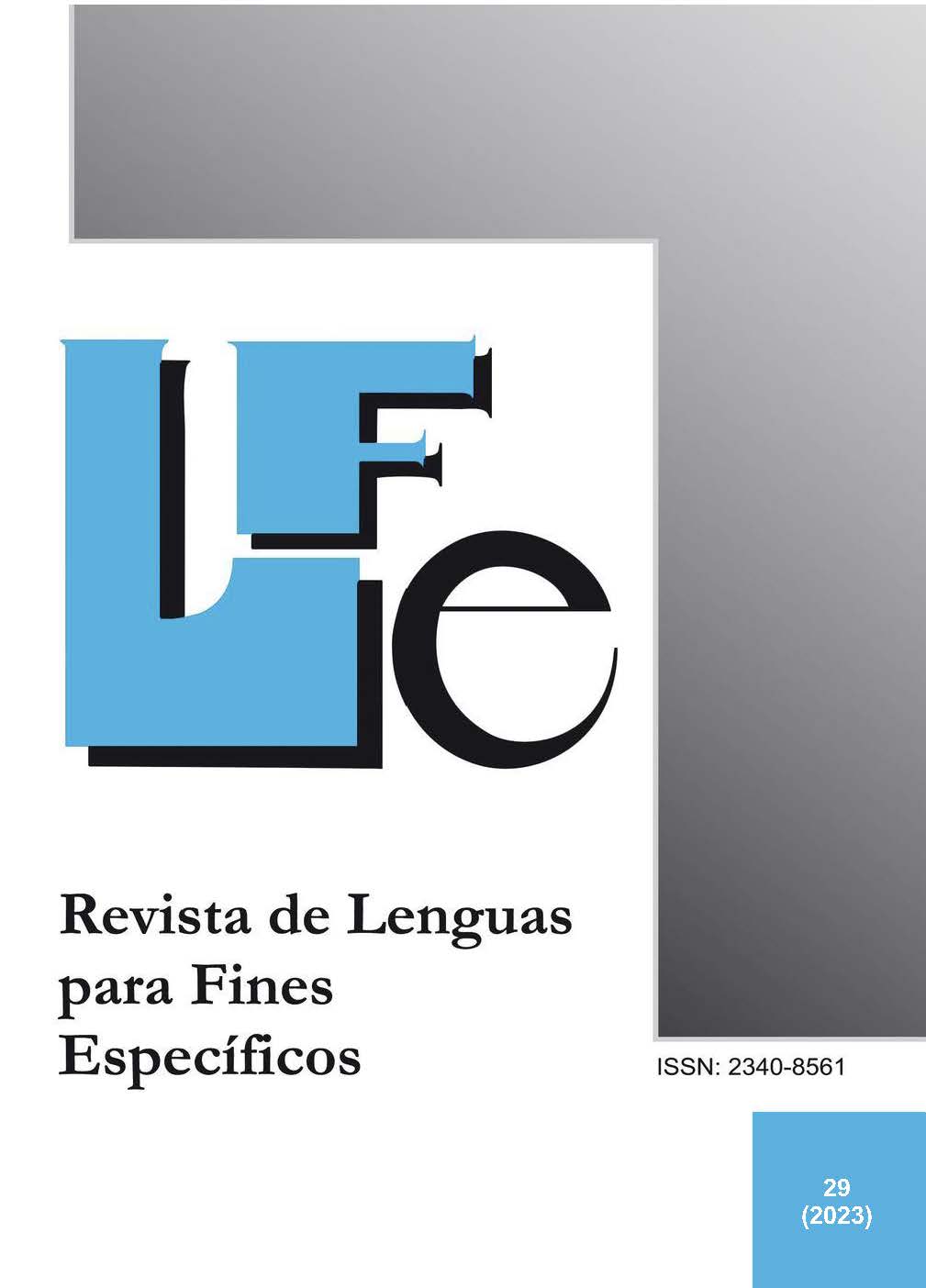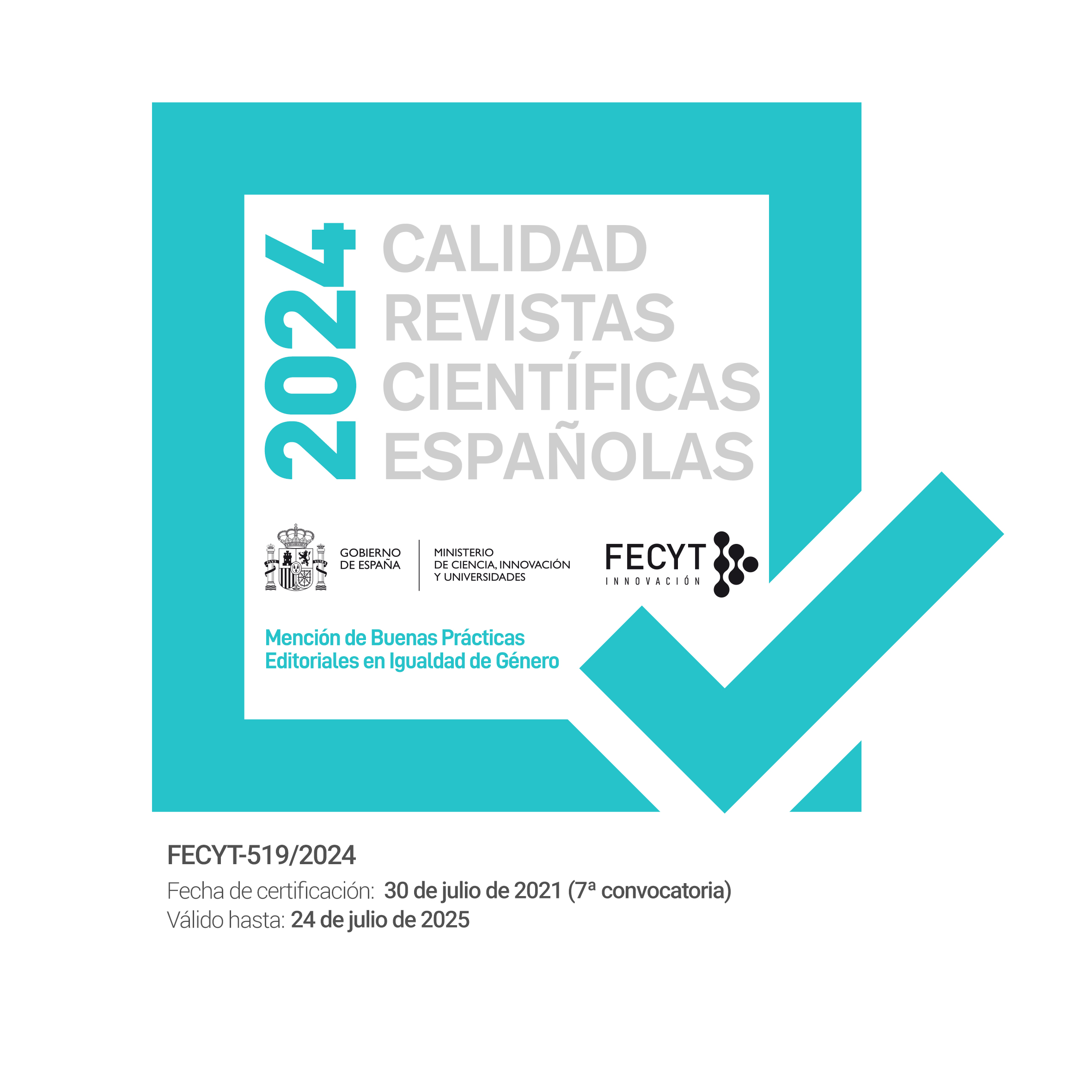Book Review: Ruggiero, Diana (2022). Teaching World Languages for Specific Purposes: A Practical Guide. Georgetown University Press, pp. 121
Palabras clave:
LSP teachingResumen
In Teaching World Languages for Specific Purposes: A Practical Guide, the author, Diana Ruggiero, Associate Professor of Spanish at the University of Memphis, draws on her over 10 years of experience designing and teaching Spanish as a world language for specific purposes (WLSP) in American higher education. Though Spanish in the US is the context within which she works, the book is intentionally written to be applicable to the teaching of all WLSPs and not just in the US context of higher education. The book also sets out to be useful to foreign languages instructors of all backgrounds that already have a foundation in language teaching in general and encourages them to build their own WLSP courses using their unique strengths and perspectives. Chapters 1-4 provide context for teaching WLSP, addressing issues such as the definition, scope, and benefits of WLSP, as well as preparation to teach WLSP. Chapters 5-11 address curricular development in community service learning (CSL), to which the author devotes considerable attention, the integration of WLSP into foreign languages classes, interpreting, culture, heritage language learners, and WSLSP during COVID-19. Lastly, the book concludes with a collection of teaching materials appendices ranging from specific online and print resources to a sample syllabus, lesson plans, assignments, and assessments.
Descargas
Citas
Alcaraz Varó, E. & Hughes, B. (2002). Legal translation explained. Manchester: St. Jerome Publishing.
Hutchinson, T. & Waters, A. (1987). English for Specific Purposes: A learning-centred approach. Cambridge University Press.
King de Ramírez, C. & Lafford, B. (2018). Introduction. In C. King de Ramírez & B. Lafford (Eds.), Transferable skills for the 21st century: Preparing students for the workplace through world languages for specific purposes (pp. 1–20). Sabio Books.
Matthews, G. & Ardemagni, E. (2013). Judicial interpretation education in U.S. colleges and universities: The path to academic recognition. Translation and Interpreting Studies, 8(1), 73–93.
Mikkelson, H. (1994). The interpreter's Rx: A training program for Spanish/English medical interpreting. ACEBO.
Descargas
Publicado
Cómo citar
Número
Sección
Licencia
Aquellos autores/as que tengan publicaciones con esta revista, aceptan los términos siguientes:
- Los autores/as conservarán sus derechos de autor y garantizarán a la revista el derecho de primera publicación de su obra, el cuál estará simultáneamente sujeto a la Licencia de reconocimiento de Creative Commons que permite a terceros compartir la obra siempre que se indique su autor y su primera publicación esta revista.
- Los autores/as podrán adoptar otros acuerdos de licencia no exclusiva de distribución de la versión de la obra publicada (p. ej.: depositarla en un archivo telemático institucional o publicarla en un volumen monográfico) siempre que se indique la publicación inicial en esta revista.
- Se permite y recomienda a los autores/as difundir su obra a través de Internet (p. ej.: en archivos telemáticos institucionales o en su página web) antes y durante el proceso de envío, lo cual puede producir intercambios interesantes y aumentar las citas de la obra publicada. (Véase El efecto del acceso abierto).

Revista de Lenguas para fines específicos is licensed under a Creative Commons Reconocimiento-NoComercial-SinObraDerivada 4.0 Internacional License.
























